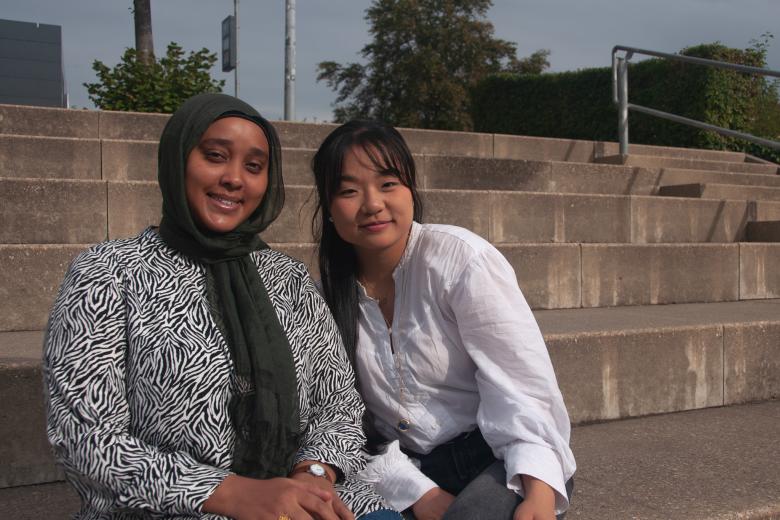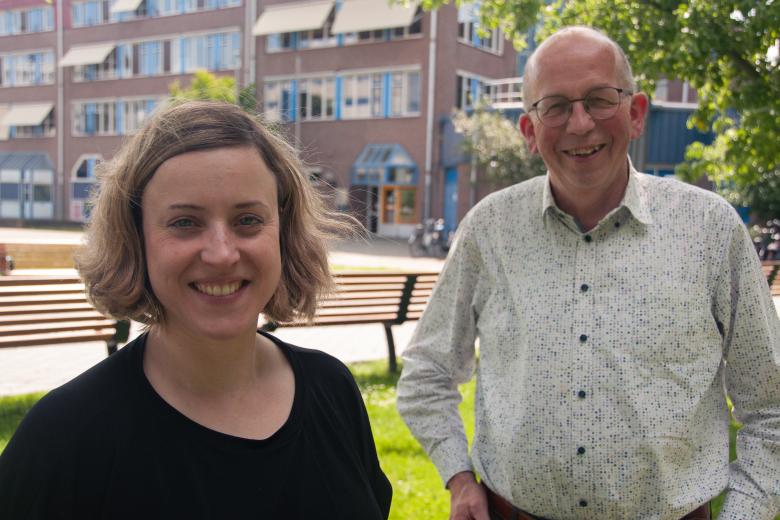Why this programme
In a world facing pandemics, chronic diseases and emerging health threats, it is essential to detect infectious disease outbreaks early, monitor disease trends, and implement effective health-promoting interventions. This must be based on solid scientific evidence, the backbone of public health and medicine. Epidemiologists provide this evidence by investigating disease trends, determinants of both health and disease, and the effects of public health and clinical interventions. Because of its importance, epidemiology is considered the cornerstone of public health, preventive medicine, and evidence-based clinical medicine.
In this programme, you explore epidemiology in all its different facets. You gain an advanced understanding of methodological concepts related to study design, bias, the measurement of health and disease, and of statistics. You develop the skills needed for designing, analysing, and interpreting epidemiological studies, synthesizing evidence from different studies, and communicating research findings to the public, policy makers, governmental institutions and academic communities.
Public health challenges can be complex and require a holistic understanding of health. Our student population is diverse in study background and demographics, allowing for multidisciplinary discussions that prepare you for the complexities faced in epidemiology. You gain meaningful first hand research experience by conducting research within a larger ongoing study under the guidance of a personal supervisor.
This programme is for you if:
- you want to contribute to the health of populations through scientific study
- you enjoy analysing large datasets for answering relevant research questions
- you are looking for a discipline that connects science with real-world health problems
The epidemiologist’s toolbox
This master’s programme offers a broad profile covering all fundamental topics in epidemiology. You develop an understanding of observational and interventional study designs, types of bias, confounding, effect modification, clinimetric properties of measurement instruments, meta-analysis techniques, and advanced statistical analysis techniques. Combined, this knowledge functions as the toolbox you need in all subdomains of epidemiology.
If you have gathered sufficient knowledge on health and disease at the bachelor’s level, you can become an Epi-A registered epidemiologist in only one year with the master’s in Epidemiology in Maastricht.
Research communication
Academic writing and presentation skills are essential for making a lasting impact and must be among the core skills of an epidemiologist. That’s why a strong emphasis is placed on research communication. There is a dedicated course on writing a research protocol and you write your thesis in the format of a scientific article. You will orally present your research protocol using a poster format, a common way to present studies at scientific conferences. Additionally, you will orally present your thesis in a conference-style format with room for discussion during the yearly master's of Epidemiology symposium.
Topics in epidemiology
The master’s programme in Epidemiology allows you to shape your own academic journey. You select two 3-EC topics on subdomains of epidemiology or domains related to epidemiology, for example infectious disease epidemiology and health technology assessment. Additionally, you select your own research topic for your thesis from a list of diverse thesis topics put on offer by the master or you propose your own topic for research within an ongoing study with medical ethical approval and availability of data; this enables you to profile yourself as an epidemiologist in a certain subdomain or to explore a broader range of topics, depending on your preference.
Strengths of our faculty
Employability
We emphasize the development of soft and hard skills needed for a job in research. Academic writing, presentation skills, and programming experience with statistical software are valued assets on the labour market. Our staff of senior epidemiologists has an extensive network and is active in epidemiological research in an international context. We organise a career event to bring students in contact with alumni and mid-career epidemiologists to learn from shared experiences. You also receive a workshop on preparing yourself for the labour market and are introduced to the Netherlands Epidemiological Society.
Thesis research
The master's in Epidemiology includes 25 EC of practical research experience. You write a research protocol and conduct 12 weeks of full-time research by analysing a large dataset and reporting the study results in a thesis. Topics are on offer from within ongoing research at UM or MUMC+, regional hospitals, the municipal health service, the cancer registry, or other (inter)national institutes. The topics cover different subdomains in epidemiology, for example cancer, cardiovascular, clinical, infectious disease, or social epidemiology. Students can also propose their own topic for research taking into account the requirements for thesis topics.
Epidemiology for professionals
The master Epidemiology can be followed part-time in two years, ideal for working professionals or those looking to combine a master’s with other activities. The study load for part-time students is 20 hours per week. Part-time students follow the Tuesday courses in year 1 and the Friday courses in year 2. Single courses are also open to professionals and can be followed on a contract basis. The same admission requirements apply as set for the master's.
PREMIUM honours programme
Want to gain that extra edge by getting real-world experience during your studies? The PREMIUM honours programme will help you gain the experience and develop the skills employers are looking for. As part of a team of students and under the guidance of our academic staff, you will spend about three months working on a real-world assignment for a company, NGO or educational institution. You will also work on a personal development plan, receive intensive individual coaching and attend master classes and workshops. All of this will take about 250 hours, but it will give you a lifetime of benefits.
Student stories
Epidemiology students on a scholarship: Emily and Suhad
Emily and Suhad are both scholarship students in Epidemiology. They're looking for a broad foundation in research methodology, in order to help them reach their dreams.

Epidemiology: A path for puzzlers and critical thinkers
As an Epidemiology student, you’ll join a broad one-year programme that continuously strives for improvement. You’ll be eligible to become certified as an Epidemiologist A, and after obtaining a PhD in epidemiology at the Department of Epidemiology at Maastricht University you’ll be eligible to become certified as an Epidemiologist B. Those are the conclusions of the visitation report by the Netherlands Society for Epidemiology.

